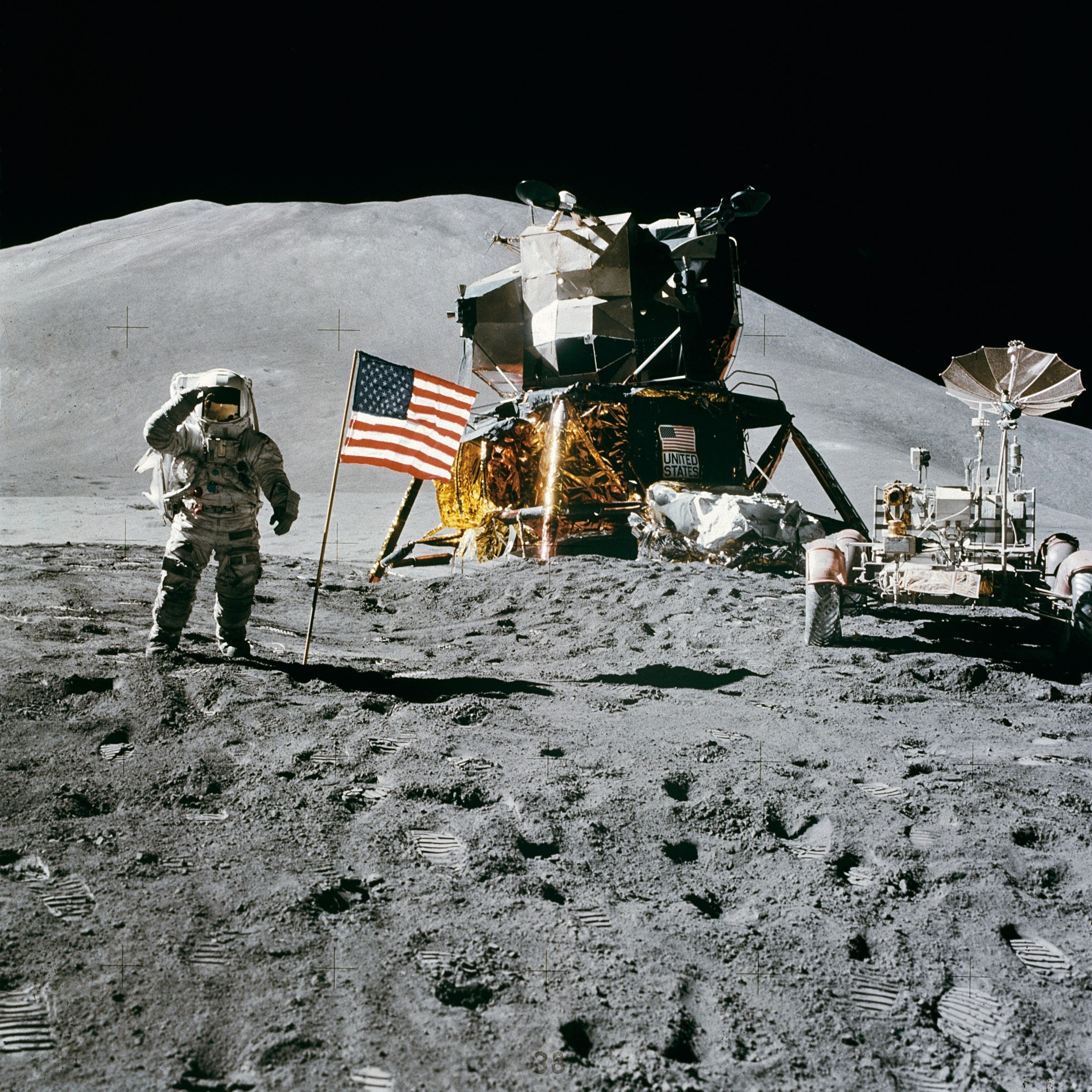Forever transformed our perspective of ourselves, our place in the universe and the way we perceive our capabilities as a species, the moon landing ignited the indomitable spirit of exploration.
No other event has captured the world’s imagination and left an indelible mark on human history quite like this voyage. And, to this day, the achievements of Apollo 11 continue to captivate our collective imagination and fuel the dreams of future space pioneers.
One moment changed travel forever

NASA’s Apollo program, established by President John F. Kennedy in 1961, aimed to put humans on the moon before the end of the decade. And, in 1969, millions around the world watched in awe as Neil Armstrong and Buzz Aldrin became the first humans to set foot on the moon’s surface, with the former famously declaring, “That’s one small step for (a) man, one giant leap for mankind.”
You may also enjoy: 21 inspirational figures in travel who inspired us to believe that anything is possible
A profound influence on society

Furthermore, space travel fostered a global perspective on our planet. The iconic “Blue Marble” photograph, captured by Apollo 17 astronauts in 1972, showcased our planet’s beauty. And also, its vulnerability, emphasizing the importance of environmental stewardship of the ever-changing face of Earth.
You may also enjoy: How to embrace the new ‘out of comfort zone’ travel trend in 2023
The new space race for civilian travel
The modern space race for civilian travel is fueled by a shared vision of making space accessible and expanding the boundaries of human experience and existence. These projects not only seek to provide future experiences for space tourism, but also pave the way for further space colonization and exploration.
Leading the charge are the three major billionaire-backed players, SpaceX, Virgin Galactic and Blue Origin, who have all recently made some big moves furthering the new space race.
You might also be interested in: The unknown icons of travel you’ve never heard of, but should have
Virgin Galactic
This inaugural commercial flight, Galactic 01, was a research-focused mission with Italian Air Force-funded passengers, although future flights are expected to include a range of high-profile customers.
The company has so far sold about 800 tickets, including 600 at prices up to $250,000 and another couple hundred at $450,000 per ticket. Although some of these future customers paid for their tickets more than a decade ago. Virgin Galactic intends to follow this up with both civilian astronaut and research customers flying on regular intervals thereafter.
SpaceX
Their most recent flight in May 2023 saw SpaceX transporting four private citizens on a commercial flight to the International Space Station. This was their the second ‘private astronaut mission’ aimed at opening the high frontier to commercial development.
Continued testing of Space X’s Starship rocket continues to captivate the masses. The largest and most powerful rocket to ever fly, the latest test of this (currently unmanned) rocket saw the vessel explode shortly after take-off this April 2023. However, this was still considered a success as it is a further step towards refining learning and design.
Unique and revolutionary, future versions of Starship could send more than 150 tons into orbit and land on the moon and Mars, fueling the new space race and further paving the way for tourism and colonization.
Blue Origin
Blue Origin was founded with a vision of millions of people living and working in space for the benefit of Earth. They aim to tap into the limitless resources of space and enable the movement of damaging industries to preserve our home planet.
This May, Blue Origin was selected to work with NASA to build a new lunar lander, a demonstration of the importance of the development of these commercial ventures. The contract covers the design, development and testing of and two demonstration missions. NASA has said that this will serve to increase competition, reduce cost to taxpayers and further invest in the lunar economy.



